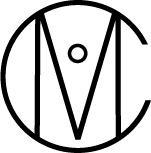The Mask of Authenticity
In my last letter, I included a link to an article in The Atlantic about the mask of the self.
“Hiding your feelings can be freeing. But eventually you have to take off the mask.”
It seemed to hit a nerve with us all, as the most clicked link of any of my recent letters. Is it Christmas? ‘Tis the season, where we feel pressure to be happy, to spend, to eat. At the darkest part of the year, when we should be hunkering down among the softness of the midwinter trees and low horizons, we’re forcing ourselves to glitter.
But it’s more nuanced than me telling you to throw that mask off this Christmas, and embrace yourself, and allow yourself to be embraced by others. What self? I’m less sure than ever what that is, or if it even matters.
A dear friend in our community replied to me, and what she said was so clever, and so interesting, that I invited her to write today’s letter for you.
Allow me to introduce Cristina Maria, a London-based writer, Solzhenitsyn devotee, Bauhaus fanatic, Plato-quoting pedant, with an exclusive essay, just for us anxious wrecks.
Cristina Maria
The Mask of Authenticity
Last week, my best friend collided with an acquaintance during one of my most awkward dinners in recent memory. I use these words - best friend, acquaintance - at their deepest, most literal meaning. The first has been a constant presence in my life for more than 15 years, while the second is someone I picked up at a party I didn’t even want to go to.
I engineered it all, you see.
As I was getting ready for that party where no one knew me, shuffling through outfits and personalities, I realised that the interesting bit about this exercise in self-awareness is acknowledging the power you have in shaping what people see.
You’re the master of your mask.
However, context matters. There’s a mask for friends, a mask for work, and a mask for popping down to the shop and arguing with queue jumpers. But what happens when two contexts collide? In arranging that dinner, I tried switching between two masks in a single setting, and, like one of those Buzzfeed quizzes; the result might surprise you.
My best friend, who has watched me morph over the years into my current incarnation of a neurotic pseudo-counter-cultural, quasi-intellectual who hyphenates too much and likes too little, said I had been superficial and vapid. The acquaintance was just surprised I knew (and disliked) Gabriela Hearst’s latest Chloé collection. Neither was my biggest fan that night.
Plato, in his attempt to demonstrate that moral behaviour is a social construct, proposed a neat concept. The Ring of Gyges gave the wearer perfect invisibility and anonymity, freeing them from the gaze of the Other. Basically, he tried to say that if we were certain no one could ever know whether we did something unjust, we’d do it in a heartbeat because injustice is far more profitable.
I bet Plato also kicked sick puppies as soon as he turned the agora’s corner.
Outside the problem of morality, though, the question holds: What mask do you wear when no one is looking? Who was I when I got home from that dinner? Vapid fashion connoisseur or Plato-quoting pedant? I’ll save you the tension. As I walked through the door, I shuffled to the smushy, ditzy wifey personality that squeaks ‘Big-Pie, I’m home!’, and received in reply a similarly pitched ‘Small-Pie is home!’ from a mountain of a very serious man.
But what if no one’s there to play Schrödinger's personality with you? I think that’s where this elusive authentic self lies. I acknowledge how I switch to a different facet of myself, depending on who's looking. I don't feel like I'm less genuine - less authentic - with anyone.
Maybe they disagree. Maybe I don't care.
And why do masks have to be another source of pain for us, anxious wrecks? Or even be referred to as masks at all, like they’re something detached from our body. We tend to imagine each individual as a set of characteristics both completely genuine and absolutely immutable, and that's their authentic self. Everything else is a lie. How is that possible when we change every single day, both at a biological level, as our cells die one by one, and at a psychological level, as we add new experiences for our brain to use as reference?
“It’s not a mask we put on. It’s a dial we turn. ”
I suggest a change in terminology. It’s not a mask we put on. It’s a dial we turn.
When I’m at work, I don’t hide what an anxious wreck I am. I dial it down, while I amplify the organised, detail-oriented self that usually comes with anxiety like a cheap meal deal, and that managers find reliable and astute.
And when I’m home, when no one’s watching, I bite my nails raw, as I flip between Sartre’s biography and the Net-a-Porter sale. In the end, they’re all dials of myself. My authentic self.

